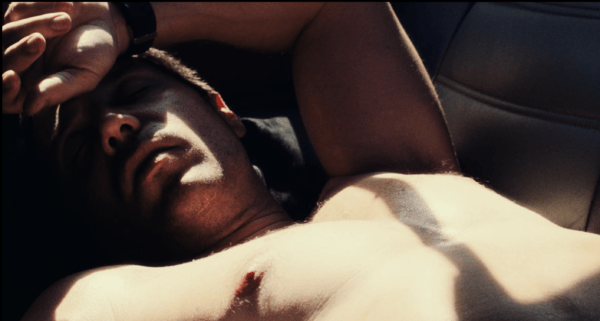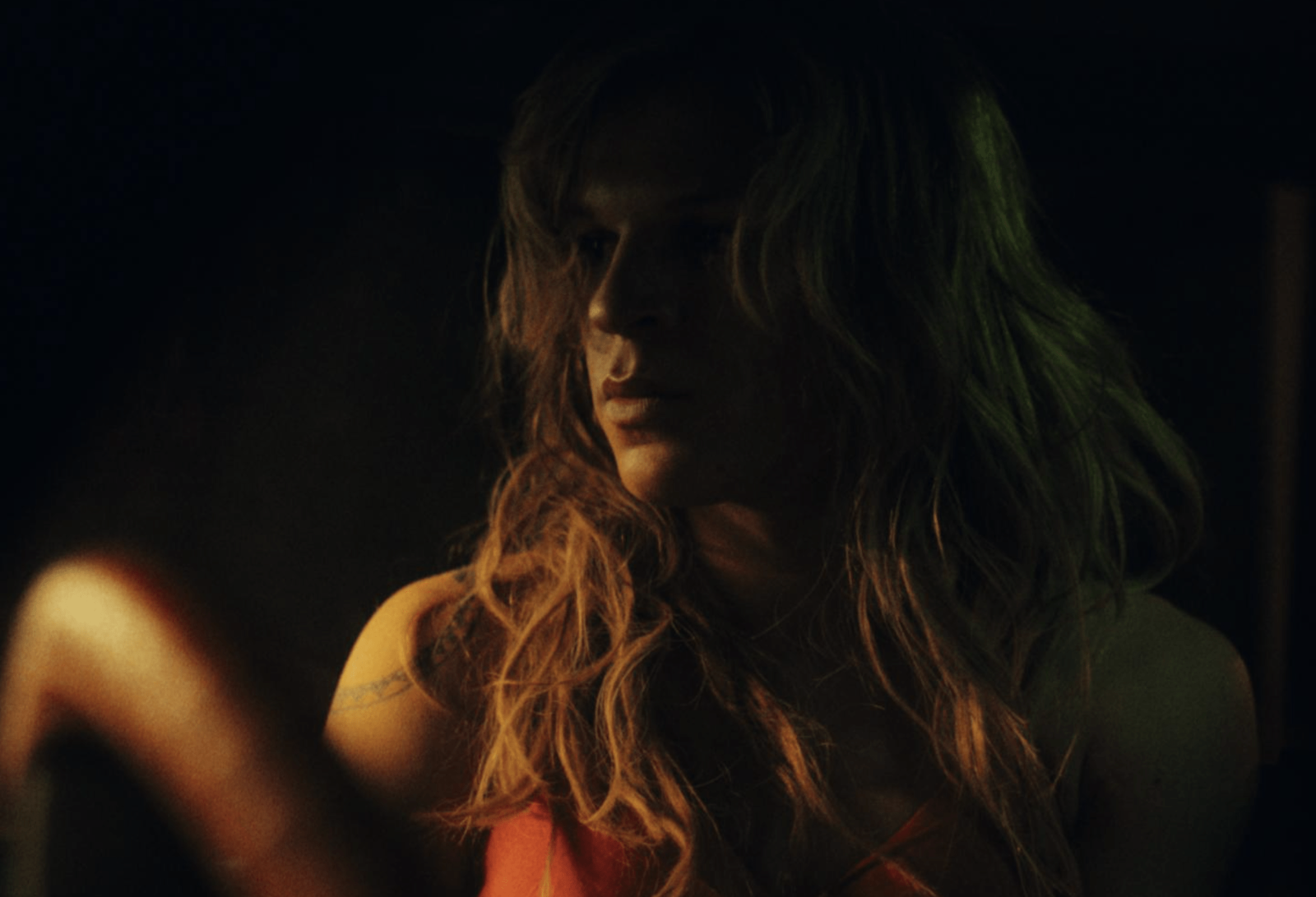
The film opens with the protagonist Daniel (Antonio Saboia), a police officer, jogging in the middle of the night. The scene immediately highlights a sense of him running away from himself and the almost palpable loneliness. In the first half an hour of the film, the strong bond between Daniel and his ex-police officer father hogs the limelight as they go about their daily lives. Daniel shares a buddy-like relationship with his father in which the former can crack a willy joke without any cognizance of discomfort. Alas, everything is not hunky-dory. Daniel is facing trial for roughing up a new recruit during police training. He spends most of his time chatting with a girl (Sara) online as a means to stave off facing the music of his reckless actions. Taking constant care of his old and feeble father Daniel realizes that life is short and he should follow his heart; wherever it takes him. The film picks up pace when Sara, his heart’s desire, stops responding to Daniel’s texts and voicemails, and he decides to go seek her out in her hometown.
From this point on, the film shifts genre – from a family drama to a soul-searching road movie. The film also functions as a semi-thriller, as Daniel’s love interest Sara is a mysterious character. Daniel, who is a policeman, employs tactics akin to finding a criminal while searching for Sara. Sara is actually Robson, a boy, who revels in being a transvestite, by the night. Daniel feels cheated when the truth is revealed during a making-out moment. And this becomes an opportunity for him to become a better human being; to not give in to his internalized anger, and to question himself regarding his own sexuality. In one of the earliest scenes of the film, where Daniel’s sister confesses that she is dating a girl, his response was an indifferent silence. It could have meant many things and a hint of homophobia was one of them.
 Apart from the central theme of taken for granted homophobia, the film highlights issues such as the claustrophobic experiences of being gay in a small town, and the unfair burden of masculinity, as Daniel comes from a family of uniformed men (his grandfather was a military man) shoulders the burden of breaking away from a tradition of toxic masculinity. Towards the last moments of the film, when he calls his father, probably, to tell him about his sexual fluidity, he couldn’t go through it. However, this small step means a lot in the larger scheme of things.
Apart from the central theme of taken for granted homophobia, the film highlights issues such as the claustrophobic experiences of being gay in a small town, and the unfair burden of masculinity, as Daniel comes from a family of uniformed men (his grandfather was a military man) shoulders the burden of breaking away from a tradition of toxic masculinity. Towards the last moments of the film, when he calls his father, probably, to tell him about his sexual fluidity, he couldn’t go through it. However, this small step means a lot in the larger scheme of things.
One of the strongest elements of the film is that every minor character that appears on the screen has a story of their own, and they make an impact on the viewer despite the limited screen time. For instance, if we look at the characters of Daniel’s bisexual sister De, and Sara/Robson’s (Pedro Fasanaro) queer friend Fernando; they are not just present to fill the space but they add layers of complexity to the story, and to the protagonists’ lives. Director Aly Muritiba has created a world of contrasts – of hopelessness and hope at the same time, and that is quite a rare feat.
The scene that will stay with me for a long time is the one where Daniel asks Sara to return the dress that the latter bought with the former’s money. And Sara puts on the dress for one last time as ‘she’ wants Daniel to see ‘her’ in the dress, at least once. A pure, unfiltered cinematic moment.
N.B. Private Deserts will be screening Miami’s OUTshine Film Festival in person and online)
Review by David Lagachu
Queeruru Correspondent David Lagachu lives in Assam, India “I am constantly trying to find a perfect balance between academia and my love for writing about films, pop and queer culture. I consider myself a global citizen and would love to be a part of a significant history of mankind.” i@maglobalcitizen

